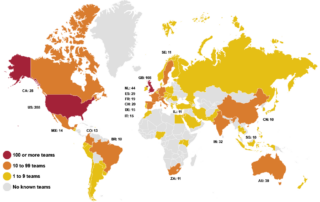The Rapid Growth of Behavioral Science
The field of behavioral science is growing. Practitioners are now spread across 72 countries, facing challenges such as making the case for behavioral science (see also the BE Guide 2023 editorial) and measuring its impact. Our survey aims to understand this growth and welcomes participation from practitioners and researchers worldwide, especially from regions outside Western developed countries.






